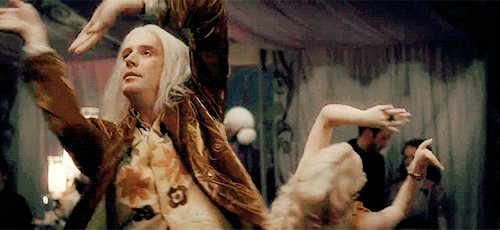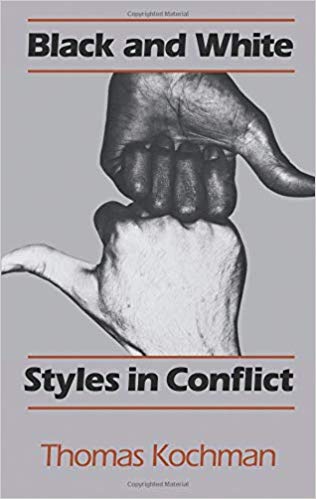As I sit before my computer and yet another online discussion, I’ve noticed yet again that there is a miscommunication about something that feels so obvious and basic to me that I simply kept hoping that eventually people would catch on. You haven’t. I’m too tired to explain this repeatedly throughout my life and instead will be referencing this post any time this problem rises.
Did you notice how I addressed this to dear white people? If you get to the end of the post and set out on your computers to type out how you aren’t this white person, how you’re different, how you don’t do that thing that’s bad, you’re exactly the problem.
Just like #Notallmen, white people seem compelled to argue against generalizations. Somehow they just can’t seem to fathom how generalizations in different cultures vary; even though somewhat regularly throughout Obsidian Tea posts, there have been notes about it. So now I’m going to spell it out for all the white people in the world.
Most white people use generalizations in the denotative manner of :
Definition of generalization
: a general statement : a statement about a group of people or things that is based on only a few people or things in that group
: the act or process of forming opinions that are based on a small amount of information
This definition is all great; well and dandy, mostly for science, and for objective “ truth”. The problem is not all cultures value objective truth, and not all cultures use your elevations in a denotative manner. I will again recommend to people Black and White: Styles in Conflict as a book that should be read before engaging in conversations with people from Black Culture if you are not already familiar with it. I recommend this book because it discusses this fact in detail. For starters, in Black argument or discussion, feelings and anecdotal data matter. In the more passionate culture, it’s not that we disregard science, but we are more likely to make statements that are anecdotal.
Let’s take a look again at #Notallmen. Majority of the men that got upset about this were white men. Why is that? Some say it is the patriarchy, and perhaps that is part of it, but I believe that the majority of it is a simple fact that white culture takes generalization statements as blanket truth, a generalization is a scientifically based statement. In fact, the whole point of the not all men movement was the fight against the idea that every post about what men do, includes the men that posted the hashtag. When you look at the other side of the argument, some people were even saying that saying not all men was ridiculous, because of course it is all men; to think that you weren’t included in that what’s considered problematic, arrogant, and dismissive.
On the other hand let’s take a look at the term “White people” often used by minorities, in particular let’s just look at the way that Black people use it. We use it as a generalization. To us this means that oftentimes this thing turns out to be true. It is an if-the-shoe-fits situation. What does that mean? That means if the generalization is talking about people like you but you do not do that thing, it is not talking about you. Generalizations are more nuanced in Black Culture. Instead of generalizations stating that everyone must be included under this umbrella and there may be scientific research to back it up, we look at our generalizations as a large net covering a majority of people.

That’s what makes the term White people so funny. Fact is, most White folk DO like mayo, don’t use lotion regularly, and don’t season their food.
Perhaps that one is a little too close to home. I live in Denver, Colorado and I moved here from the Midwest. Upon moving here I noticed a great deal of trends that I was not used to at home. At some point when I had enough data, I started saying “Colorado people”.
When I said that I was not including every person in Colorado. I was not necessarily talking about minorities. I was not necessarily talking about just locals. I was including a certain type of person that I often ran into while being here. That person probably recycles and composts, probably buys organic food, and maybe is vegan. That same person might drive a Subaru, believe in healing crystals, love the outdoors, wear strangely itchy clothing, be polyamorous, and most importantly give off that vague hippie vibe. Perhaps a relationship with kale.

A phrase I learned when I got here was “crunchy”. The deeper you’re involved in this the more I would change the terms. Once you hit a certain amount of the checklist you are the label a woowoo person, a person who’s typically found in Boulder. Here’s the key though, it’s not like I don’t understand that not everyone in Colorado is like this. Some people may have certain characteristics of this list, and some people not at all. Still that doesn’t mean that the trend doesn’t exist.
I often talk about code switching, and this is one of the smallest yet most important, and easiest way a person can code switch. Understand the culture of the person that you’re talking to and read their writing/ listen to what they say with an understanding of their world. This way every time I’m online, I don’t need to caveat my writing. It’s such a pet peeve of mine.
So, white people the next time you’re reading a Black person’s post and you start to get all up in arms about how the generalization they just made doesn’t apply to you, take a step back, take a deep breath, and consider the fact that that means the generalization was not about you; but that doesn’t make the generalization untrue. The generalization isn’t the time for you to get your feelings hurt and request the person saying the generalization sooth your concerns about not being whatever is under inspection at the moment. It takes the focus off of the idea at hand and onto you and your feelings. Not only is it frustrating, but can be disruptive to productive conversation about trends we see in the world. If, you want to be more worldly and terms of culture I’d suggest you get used to this concept.
It’s not always about you.


